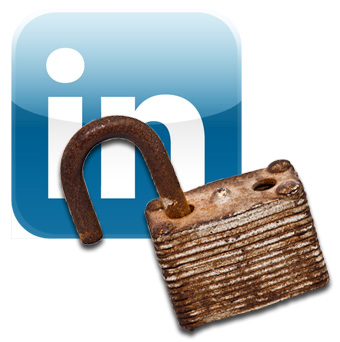Thanks LinkedIn Hackers, Time to Change Passwords - Shelly Palmer

LinkedIn just found about 6.5 million current passwords on a Russian file server. No one knows who hacked LinkedIn or what the hackers were planning, but the security breach was bad enough that LinkedIn suggested that users change their passwords. In this case, the hackers stole passwords, so no matter how strong they were, the accounts protected by there were in danger of being compromised. But, big hacker stories that scare you are perfect best practices password fire starters! Let's change our passwords from weak, stupid ones to strong, smart ones and ... let's make a few different ones so that we don't use the same one on every site. Inconvenient? You bet it is. And the more inconvenient it is for you, the more inconvenient it will be for the hackers who want your stuff.
fire starters! Let's change our passwords from weak, stupid ones to strong, smart ones and ... let's make a few different ones so that we don't use the same one on every site. Inconvenient? You bet it is. And the more inconvenient it is for you, the more inconvenient it will be for the hackers who want your stuff.
Security Questions
When a site asks you to select and fill in security questions, they are not asking for, nor are they entitled to factual information. They simply want you to give them a way to know you are the one who is going to regain access to your account. So, never use real birth date, your real zip code, the real town where you met your husband, your mother's maiden name, the last four digits of your social security number or anything else I can find out about you with Google or on your Facebook or LinkedIn profile. Don't even use your drag queen name (your first pet's name and your mother's maiden name, mine is Muffin Whitehead) it may be great fun at a party, but it is not secure and it's an invitation to any interested or motivated hacker to access your account. Make up the dates, pet's names, towns, etc. Just remember what you words and numbers you used.
As for passwords, they can only protect you if you use them correctly. Here are some guidelines: Characters Use letters (caps and lowercase), numbers and symbols. The more cryptic your password is, the better it will protect you.
Leet Use computer geekspeak to make weak passwords stronger. Leet replaces English letters with numbers and symbols. For example: a=@, E=3, i=1, S=5, etc. Check out Wikipedia for a complete Leet table.
Leet can help you turn proper nouns, which are very, very easy for machines to crack, into stronger passwords. For example: macintoshczar becomes m@c1nto5hcz@r. You can still easily remember it, but it is much harder to crack.
Mnemonics Make up a sentence and use the first letters of each word to create your password. For example: "Mozart is one of my favorite cats in the car." would yield the password: "Mioomfcitc." Then write it in Leet to make it even stronger, "M100mfc1tc." The sentence is a mnemonic device that will help you remember your password, and Leet makes it much stronger.
Lastly, keep in mind that the longer a password is, the better it is. Change your passwords on a regular basis. No birthdays, names, proper nouns, ages or anything else that looks or sounds like English or says anything about you. As a general rule, don't reuse them. And, most importantly, do not write it on a sticky-note and put it on your computer monitor — don't give me that look … you know who you are …
If you keep these very simple principles in mind, you will be much more hacker proof than you are right now. For additional security, setup and use a password on your personal computer and on your mobile phone. Remember, passwords can't help you if you don't use them.
Shelly Palmeris Fox 5 New York's On-air Tech Expert (WNYW-TV) and the host of Fox Television's monthly show Shelly Palmer Digital Living. He also hosts United Stations Radio Network's, Shelly Palmer Digital Living Daily, a daily syndicated radio report that features insightful commentary and a unique insiders take on the biggest stories in technology, media, and entertainment. He is Managing Director of Advanced Media Ventures Group, LLC an industry-leading advisory and business development firm and a member of the Executive Committee of the National Academy of Television Arts & Sciences (the organization that bestows the coveted Emmy® Awards). Palmer is the author of Television Disrupted: The Transition from Network to Networked TV 2nd Edition (York House Press, 2008) the seminal book about the technological, economic, and sociological forces that are changing everything and, Overcoming The Digital Divide: How to use Social Media and Digital Tools to Reinvent Yourself and Your Career (York House Press, 2011) For more information, visit shellypalmer.com.
Read all Shelly's MediaBizBloggers commentaries at Shelly Palmer Report.
Check us out on Facebook at MediaBizBloggers.com
Follow our Twitter updates @MediaBizBlogger
The opinions and points of view expressed in this commentary are exclusively the views of the author and do not necessarily represent the views of MediaBizBloggers.com management or associated bloggers. MediaBizBloggers is an open thought leadership platform and readers may share their comments and opinions in response to all commentaries.


